BRIAN E. FRYDENBORG
How Obama lost — and Putin won
It is fitting that, on the 75th anniversary of Japan’s attack on Pearl Harbor, I’m writing about an attack that has been far worse in its overall effects on America than Pearl Harbor was.
If Dec. 7, 1941 is a date which will live in infamy, then 2016 is a year which will live in infamy.
All things being equal in an election that was decided by, at current count, fewer than 38,600 votes spread across three states, it’s pretty certain that without Russia’s political cyberwarfare offensive in the First Russo-American Cyberwar — and Pres. Barack Obama’s stunning lack of response — Hillary Clinton would now be the U.S. president-elect.
I’m a liberal Democrat who proudly voted twice for Obama, but I will make clear what no one seems to want to, although it pains me. I tried making excuses before and after the campaign — Obama thought Clinton would win anyway, he wanted to play it safe, maybe he has something secret in store, etc. — but I thought more about, the truth became clear.
Obama failed miserably in his role as commander-in-chief, protector and defender of the United Sates of America in the final months of his eight-year presidency. In doing so, he ensured the destruction of his own legacy along with the American political system as we know it and the U.S.-led international system that has been a bulwark of great-power peace since World War II.
Here is the story of how Obama lost the war.
In June 2015, a unit of elite Russian hackers known as “Cozy Bear” or “APT 29,” working at the behest of the main security service of the Russian government, successfully hacked the servers of the Democratic National Committee, the national governing body of the Democratic Party.
DNC staff had no idea.
The FBI contacted the DNC in the fall of 2015, warning it of possible hacking without offering any specifics. When DNC staffers found no evidence on their own, they asked the FBI to provide more detail, but the FBI declined.
What the FBI wouldn’t say was that it already suspected Russia was behind the hack.
If the DNC had known this, it might have taken additional measures that could have limited the damage that occured later. Only in late March 2016 did the DNC realized its systems were compromised and, in April, brought in private cybersecurity firm CrowdStrike to help secure the servers.
Also that March, another group of elite Russian hackers known as “Fancy Bear,” or “APT 28” — working at the behest of the GRU, Russia’s military intelligence service — targeted the DNC, as well. The hacker group also targeted Clinton’s presidential campaign, namely the e-mail accounts of senior campaign officials including chairman John Podesta.
The FBI warned the campaign about possible hacking again in March — and again failed to detail the nature of the hack. It wasn’t until April that the campaign realized its systems had been penetrated, something U.S. intelligence chief James Clapper publicly hinted at in May.
It took until June for the DNC to expel the Russians. On June 14, 2016, DNC officials and CrowdStrike experts informed The Washington Post of the successful hacks. The next day, CrowdStrike released evidence of Fancy/Cozy Bear’s involvement.
On June 16, the Clinton campaign hacks made the news for the first time.
Only days after this, a hacker going by the moniker Guccifer 2.0 — an homage to the Romanian hacker who had publically outed Clinton’s private e-mail server — began releasing DNC documents. There was overwhelming evidence that Guccifer 2.0 was actually a front for Russia’s Fancy Bear.
Government officials realized in June that the Clinton Foundation was also a target of attempted Russian hacks. The same month, the Russians tried to breach voter databases in Arizona but apparently failed. In July, the Russians succeeded in hacking into Illinois voter databases and stealing information on some 200,000 voters.
Information bomb
The hacking stories faded until the evening of July 22 — just after Donald Trump’s official nomination and days before Clinton’s Democratic National Convention. That night, WikiLeaks posted 20,000 DNC e-mails that Russia had stolen from the Democrats’ servers.
The fallout from that release has been well-documented.
The leaks couldn’t have come at a worse time for Clinton, who was desperate to rally skeptical liberals for the coming fight with Trump. The leaks complicated this effort … and undermined Clinton’s ability to unify Democrats.
It was clear from the beginning that WikiLeaks and its Russian allies had designed their leaks to have the greatest possible negative impact on Clinton.
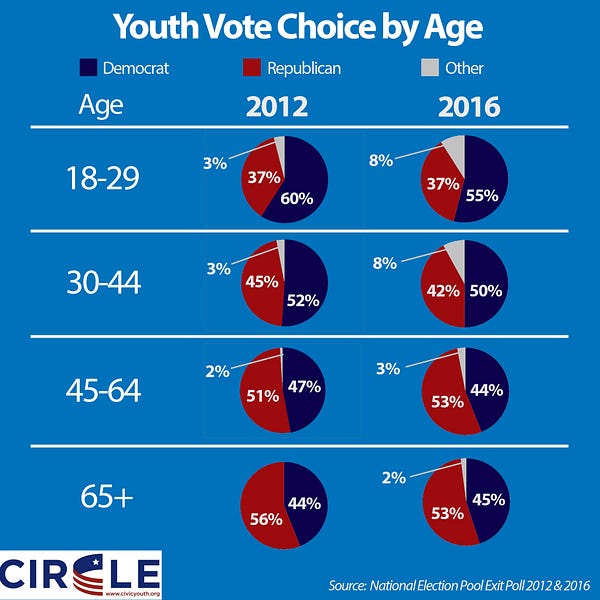
Julian Assange, WikiLeaks’ anti-American founder and leader, made no secret of his visceral dislike of Clinton and his intention to harm her campaign.
Putin had more reason to fear a Clinton presidency than a Trump presidency. Trump, after all, has spent many years courting Russian favor. Trump’s one-time campaign manager Paul Manafort had worked indirectly for Russia for years.
During the week of the Democratic National Convention, it became even more obvious how determined the Russians were on damaging Clinton and the Democratic Party. Trump publicly pleaded with Russia to hack Clinton.
That same week, the Democratic Congressional Campaign Committee and a voter database used by the Clinton campaign and other Democrats also came under assault by Fancy Bear.
Cybersecurity experts and U.S. government officials — including a consensus of FBI officials — had determined that that the Russian government was behind the hacking of the DNC. Officials saw this as a full-blown national-security issue.
Some officials had also concluded that Russia’s release of the DNC e-mails was part of an attempt by Moscow to hurt Clinton’s chances and improve Trump’s. Some Obama administration officials were so worried — and frustrated with the absence of an official response — that they shared their frustrations with the press.
The day Clinton accepted the Democratic nomination, a bipartisan group of prominent former military, intelligence and diplomatic officials and experts called on Obama to act swiftly and forcefully to counter, deter and punish the hackers. Senior Democrats on congressional intelligence committees called on Obama to publicly name the attackers.
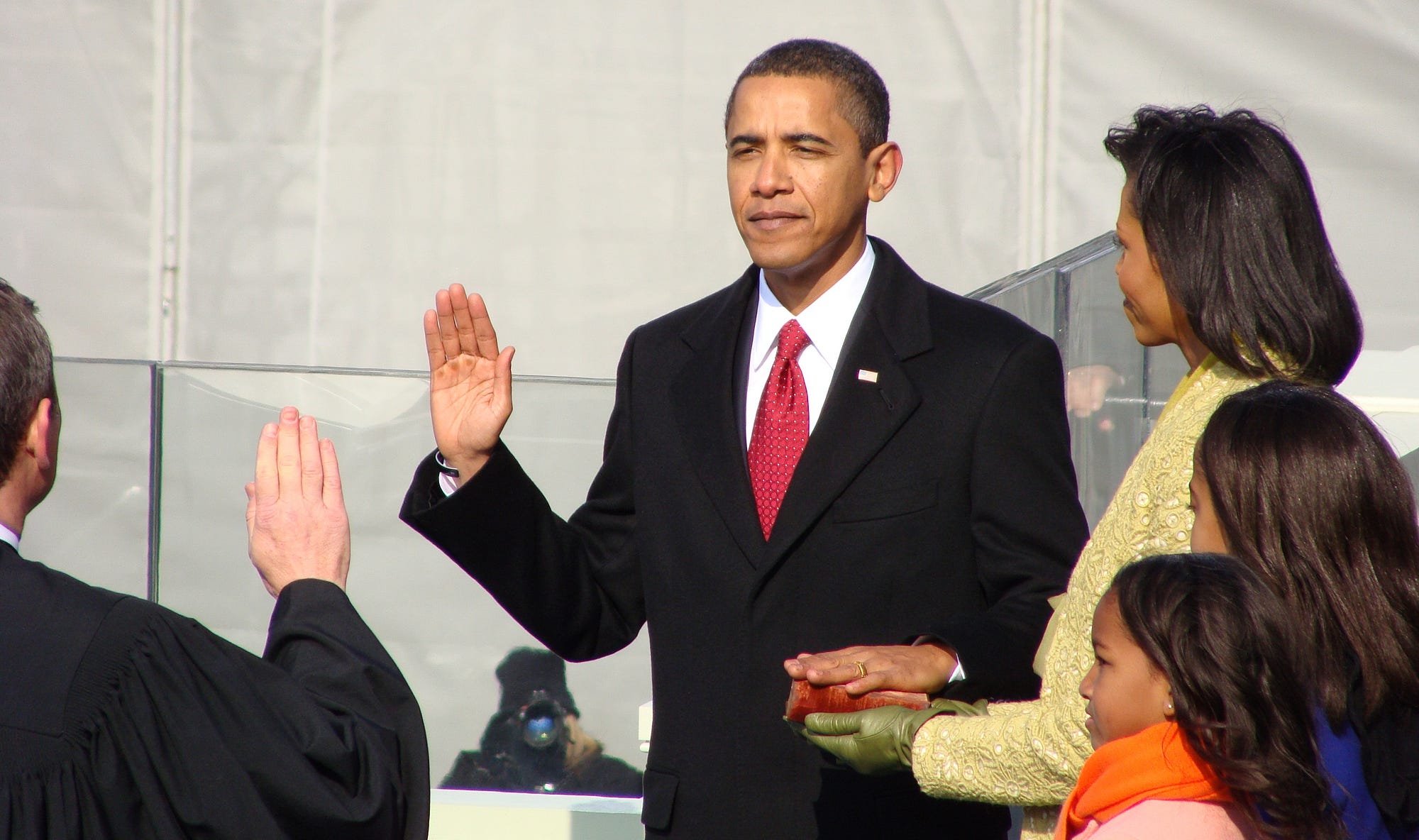 Later, it was discovered that the hacks occurred on a wider scale than anyone initially thought.
Later, it was discovered that the hacks occurred on a wider scale than anyone initially thought.
Presidential paralysis
Despite all of this, Obama steadfastly refused to publicly name Russia as the culprit, in part over fears of igniting a conflict — and uncertainty as to how to respond to Russia’s attacks. Obama apparently believed naming Russia would harm John Kerry’s then-ongoing diplomatic efforts to win cooperation with the Russians on Syria.
Obama reportedly also feared further Russian cyberattacks — or even military harassment in the Black Sea and Baltic Sea regions and in Eastern Europe. Obama apparently imagined that ignoring Russian interference in a U.S. election might somehow encourage Russian cooperation on other diplomatic fronts.
The president’s attitude flabbergasted some members of his own team. They felt that U.S. credibility was on the line. Top Democrats on the U.S. House and Senate intelligence committees either criticized Obama’s caution — as in the case of California representative Adam Schiff — or publicly warned, as California senator Diane Feinstein did, that Russia was trying to damage Clinton’s candidacy and empower Trump’s.
Calling on Obama to do more, they issued a joint statement on Sept. 22 naming Russia and clearly stating Russia’s obvious intention to influence the election. Incredibly, the White House repeatedly urged them to delay the statement.
Throughout 2016, Russian state media was decidedly pro-Trump and anti-Clinton. Russia’s propaganda machine, including hundreds of websites and many thousands of social media accounts — some unwitting, others complicit or even paid — posted thousands of anti-Clinton, pro-Trump, pro-Russian and anti-American comments, posts and stories.
Sometimes they amplified true stories such as the DNC hacks. Oftentimes they promoted partly-true or even totally-false stories that were seen hundreds of millions of times by American voters. In the final months of the election, fake election news resulted in greater engagement than real U.S. election news did. Meanwhile, Trump placed Steve Bannon — a master of creating and promoting fake news — in charge of his campaign.
Obama waited some two-and-a-half months after his administration had reached a consensus that Russia was behind the hacks to finally — on Oct. 7, 2016 — accuse Russia of trying to interfere with the election.
Later the same day, a recording from 2005 leaked in which Trump brags aboutsexual assault. Almost immediately after the recording made news, Russia and WikiLeaks came to Trump’s defense — by doubling down on their attacks on Clinton. WikiLeaks began releasing emails from Podesta that Russia had stolen.
The emails highlighted campaign infighting and Clinton’s ties to political and financial elites, all of which generated negative publicity for Clinton. Wikileaks released the emails in batches almost every day starting Oct. 7 and continuing through Election Day on Nov. 8, ensuring the pilfered missives would remain in the headlines even as U.S. officials dug up further evidencethat Russia was behind the leaks.
Exit polls — especially in the key swing states of Pennsylvania, Michigan and Wisconsin — showed that voters who made their time up during this period overwhelmingly broke for Trump.
As the election neared, Obama was reportedly considering a “proportional” response to Russia’s aggression. Instead, Americans heard a deafening silence. To add insult to injury, weeks before the election Trump claimed at the last presidential debate that people “had no idea” whether Russia was behind the hacks.
Russia cruelly offered to send election observers to several U.S. states.
On Oct. 31, 2016, Obama called Putin on a sensitive nuclear hotline and warned him not to hack the electoral process. Obama claimed the warning amounted to successful deterrence.
But Putin had already won. He had essentially “weaponized” WikiLeaks — and, in the process, the unwitting U.S. news media — against Clinton, the Democratic Party, the U.S. electoral process and American democracy itself. And almost overnight, he largely nullified the Republican Party’s traditional hostility to him and his regime.
Most Republicans seem to prefer not to attack their new benefactor. When in mid-December all of the Democratic members on the Senate Select Committee on Intelligence called for the Obama administration to declassify information on Russia’s interference in the U.S. election, not a single Republican on the committee joined the call.
Russia’s hacking and disinformation campaigns, coupled with Obama’s dismal failure to respond appropriately to them, were themselves certainly more than enough to explain Clinton’s razor-thin loss.
Other factors — Clinton’s private e-mail server scandal, the way FBI director James Comey engaged with the public during the bureau’s multiple investigations, the Bernie Sanders phenomenon, polling errors, the style and focus of media coverage, and, of course, many Americans’ irrational, visceral hatred of Clinton — undeniably also played a role.
A serious blow to Western democracy
Russia had simply waltzed into America’s national election, Obama’s political party and the campaign of Obama’s chosen successor, did what it pleased. Wars have been fought over far less, and yet Obama’s response was to avoid confrontation.
The most successful cyberattack in world history also involved the weakest response by any American president ever to foreign aggression. It was also the worst foreign attack on American soil since the War of 1812. Neither Pearl Harbor nor 9/11 resulted in a regime change that put in place a U.S. president who is as grossly unfit for high office as Trump is.
Russia’s assaults have diminished confidence in the American political system, fanned the flames of cynicism and normalized fake news, making America overall more divided, less governable and more confused than at any time since the post-Civil War Reconstruction period. These acts have also badly damaged the U.S.-led international system that has been in place since World War II.
This First Russo-American Cyberwar will be studied for generations — for centuries, even — as a brilliant example of a bloodless strategic victory of one state over another.
And also as one front within a broader Russian war against the West that is becoming increasingly brazen. Russia’s propaganda machine worked intensely against “remain” in the United Kingdom’s Brexit campaign and was clearly crucial in swaying votes in what turned out to be a close decision in favor of “leave.”
Russia also targeted Sweden as that country voted on closer ties with NATO. Moscow’s hackers have likewise gone after Finland. Russia may have even been involved in an attempted coup in Montenegro, which is on the verge of joining NATO.
Russian propaganda boosted right-wing parties in Italy’s November 2016 vote that turned into a stinging defeat for the centrist, pro-E.U. party. Only in Austria did the pro-Russia, far-right candidate lose by a large margin in an election that nevertheless signaled a significant weakening of Austria’s political center, and in which fake news — not yet directly linked to Russia — played a major role.
In Russia, lawmakers cheered the developments in both Italy and Austria, seeing them as further signs of the demise of the current European system. Since Trump’s victory, pro-Russian presidential candidates have won in Moldova and Bulgaria, where Russian political meddling has been a significant force for years.
The Baltic states — Estonia, Latvia and Lithuania —have seen a significant increase in Russian disinformation since the U.S. election.
Germany could be next. Russia’s tool WikiLeaks is targeting German chancellor Angela Merkel and her party in Germany ahead of national elections in 2017. To what effect, we don’t know.
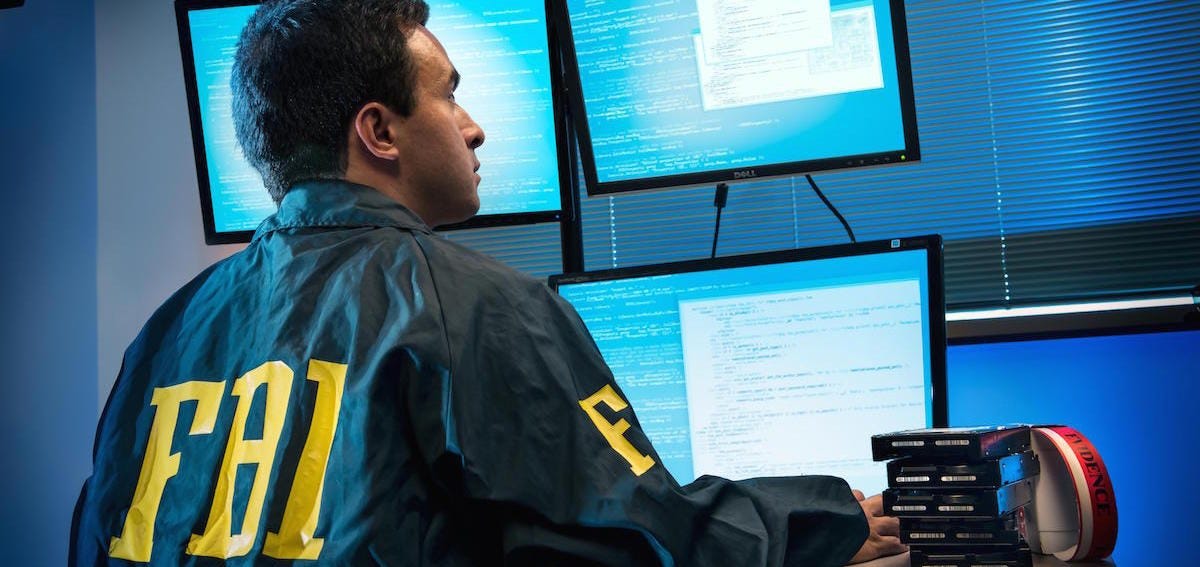
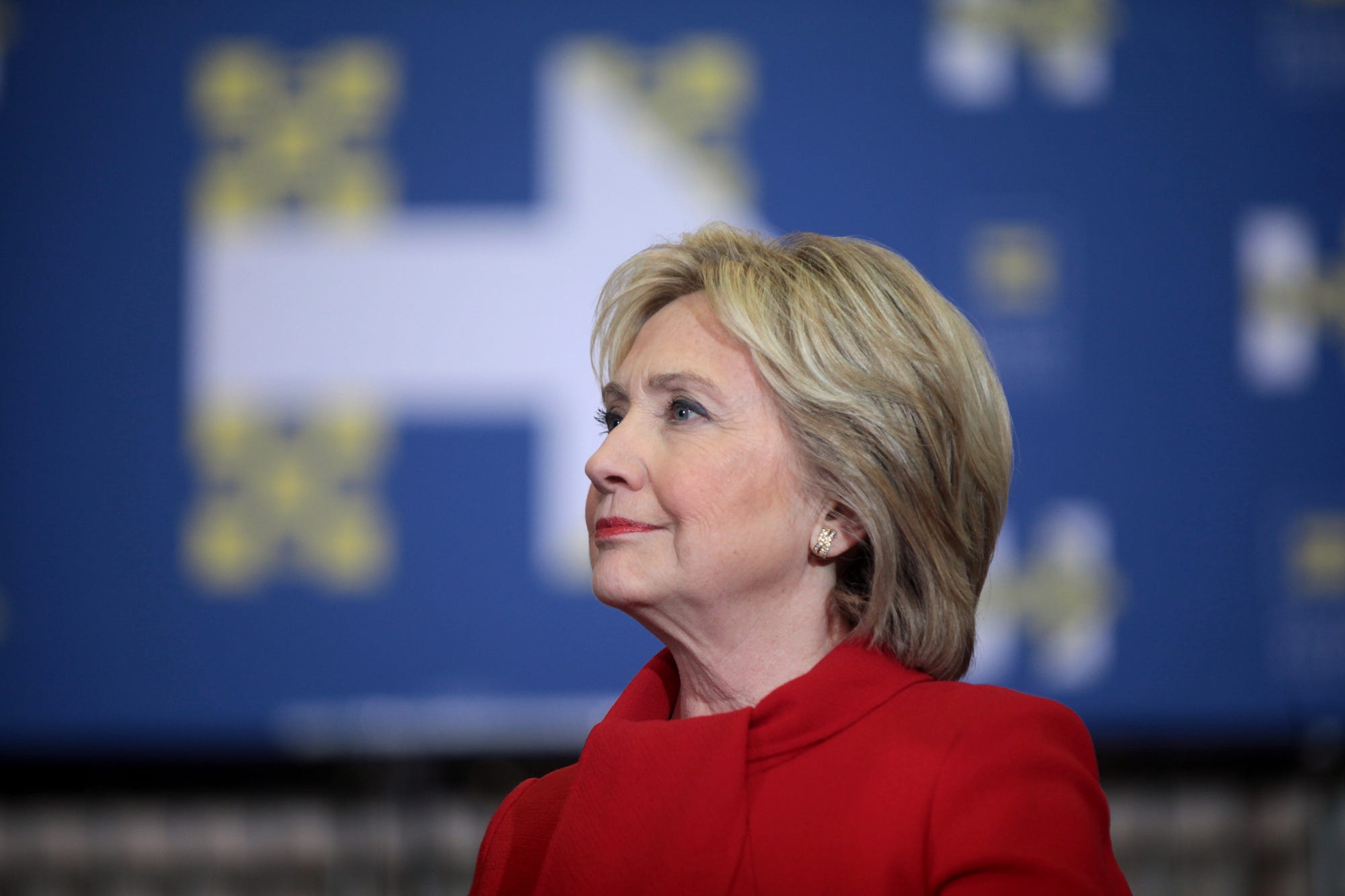
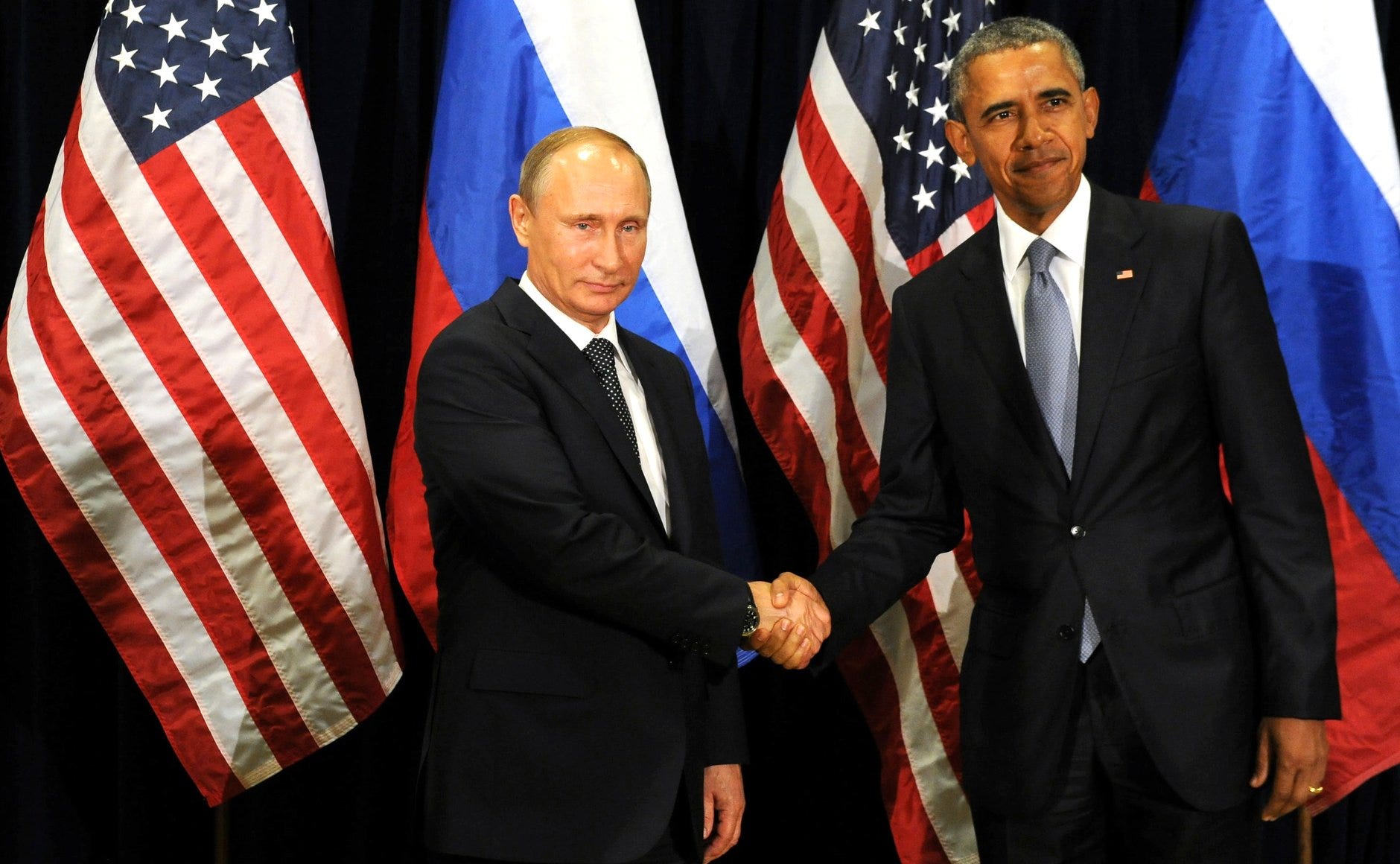
No comments:
Post a Comment